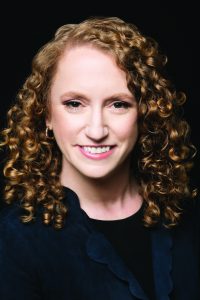The PEN Pod: On Belarus, Hong Kong, and Free Speech Rights for Students

Photo by Beowulf Sheehan
Every Friday, we discuss tricky questions about free speech and expression with our CEO Suzanne Nossel, author of Dare to Speak: Defending Free Speech for All, in our weekly PEN Pod segment “Tough Questions.” This week, we discuss media crackdowns in Belarus and Hong Kong as well as the case of a cheerleader whose First Amendment rights have been upheld by the Supreme Court this week. Check out the full episode below (our interview with Suzanne begins at the 12:57 mark).
On Media Freedom and Democracy in Hong Kong
“We have been documenting this shrinking space for press freedom in Hong Kong since 2015, and at that time, we called one of our reports, Writing on the Wall, and it was clear that Beijing was increasingly forcing Hong Kong under its very tight thumb and not going to tolerate the freewheeling, quasi-democratic atmosphere that has characterized Hong Kong for so long. That crackdown has just accelerated over the last year and a half with the passage of the national security law and then one step after another.
“I wrote a piece about this maybe six or eight weeks ago, and it’s just getting steadily worse. The closure of Apple Daily is not surprising, but it’s just the latest blow. I don’t think anyone really has leverage right now to turn the Chinese around on this, and I think they see it as existential. That if Hong Kong is breeding ground for democratic dissent, that that is going to threaten their control over the island, that eventually is going to seep into the mainland. So they won’t have it. . . . What is extremely important is to continue to call it out.”
On a Recent Supreme Court Ruling About a Cheerleader’s Snapchat Post
“What the Supreme Court has now said is that if there is evidence that the speech has caused some substantial disruption to the operation of the school, that that may be a circumstance where they could within their rights to punish or prohibit it, but that this didn’t rise to that level. . . . It’s an important decision that establishes that students do have free expression rights. That’s not a new principle, but those rights are limited, for youth. For example, the work that we do on free speech on college campuses, we’re not deep experts on the free speech rights of high school students, but the rules are different than on college campuses.
“The principles of academic freedom haven’t been recognized by courts to operate the same way—there have been sharp constraints put on, for example, student newspapers and the authority that administrators have to dictate what they can and can’t publish. . . . I think the court put out an important marker, that where there’s no evidence that the speech has caused any kind of disruption, that students have First Amendment rights. I really liked Justice Breyer’s framing—that America’s public schools are the nurseries of democracy. We’ve come to recognize how vitally important it is to educated young people on free speech rights, and that isn’t being systematically done.”
On What’s Next with Belarus
“I’m at least hopeful that the Biden administration will take a strong, principled stand. I think it was important that Under Secretary of State for Political Affairs Victoria Nuland attended this event—she’s one of the most senior people in the State Department—and she participated with us this week in our event, alongside foreign ministers from Lithuania, Estonia, Latvia, Slovakia, Poland, Denmark. It was really pretty extraordinary, and kind of an illustration of what is possible in Zoomland. You never would have gotten so many foreign ministers in one room on such short notice on a topic.”






